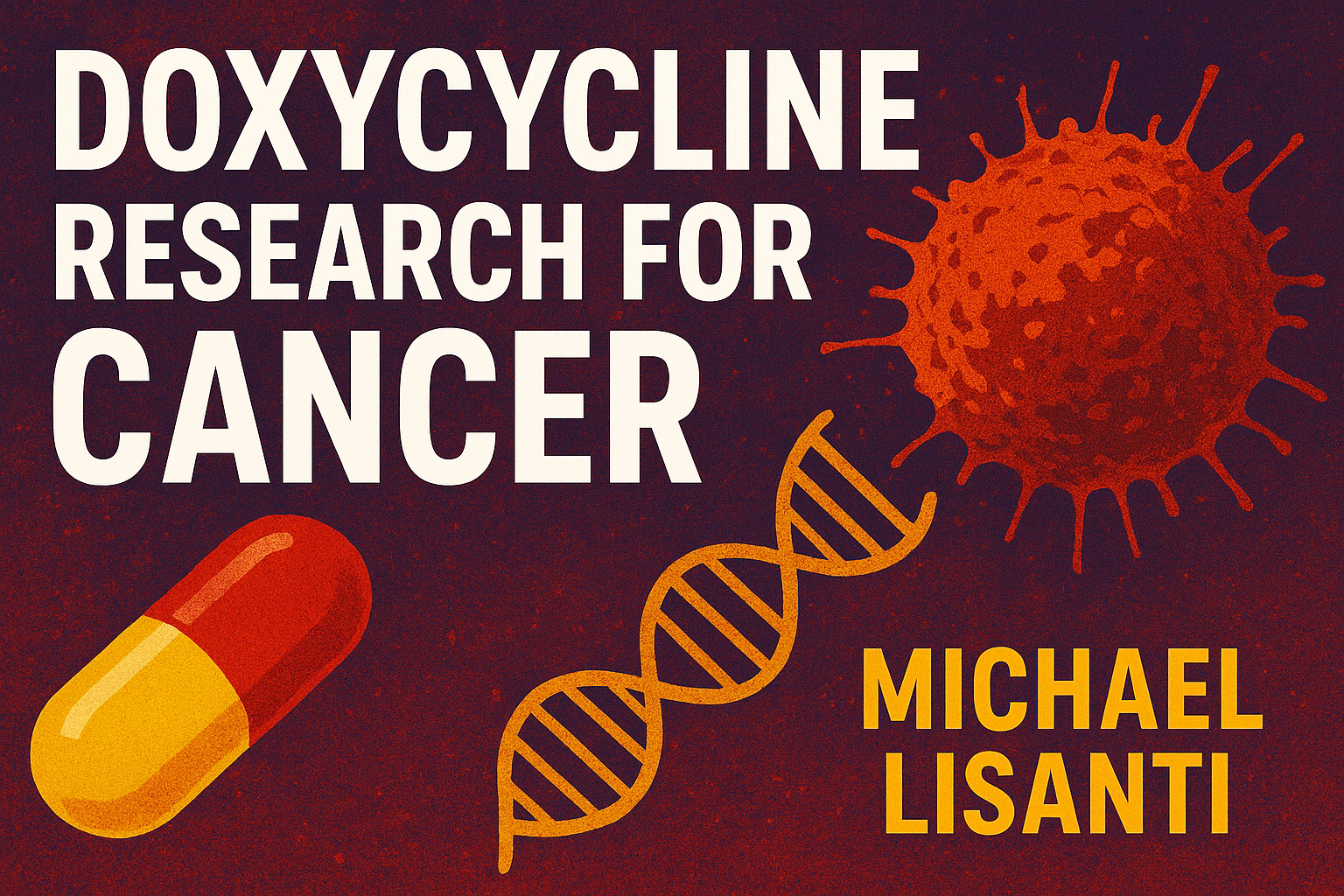Doxycycline for Cancer? The Manhattan Project for Cancer Continues with Michael Lisanti

In a medical landscape dominated by genetics and pharmaceutical profits, one question continues to echo through the corridors of truth-seeking science:
Why is the metabolic theory of cancer still largely unknown?
In a recent episode of A Neighbor’s Choice, David Gornoski sits down with Dr. Michael Lisanti, Professor of Translational Medicine at the University of Salford, to discuss his groundbreaking research that could redefine how we understand—and treat—cancer.
Dr. Lisanti’s work builds upon the metabolic theory of cancer, a framework pioneered by scientists like Dr. Otto Warburg and Dr. Thomas Seyfried, which views cancer not as a genetic mutation but as a disease of cellular metabolism and mitochondrial dysfunction. This theory suggests that by targeting a cancer cell’s energy production, we can stop its growth—and perhaps even reverse it.
One of the most surprising findings in Lisanti’s research involves Doxycycline, a common and inexpensive antibiotic. Studies have shown it can selectively weaken cancer stem cells by disrupting mitochondrial function—something many advanced and costly cancer drugs fail to do. While it’s not a cure, its remarkable effectiveness in preclinical models challenges the conventional narrative of cancer treatment.
So why isn’t this headline news?
Because therapies that target metabolism—like dietary strategies, repurposed drugs, and mitochondrial restoration—don’t fit easily into the billion-dollar framework of modern oncology.
This conversation goes beyond lab results—it’s about scientific freedom, the ethics of medicine, and the courage to pursue truth in a system designed to maintain control.
🎥 Watch the full episode: A Neighbor’s Choice
🔗 Follow David Gornoski on X: @DavidGornoski